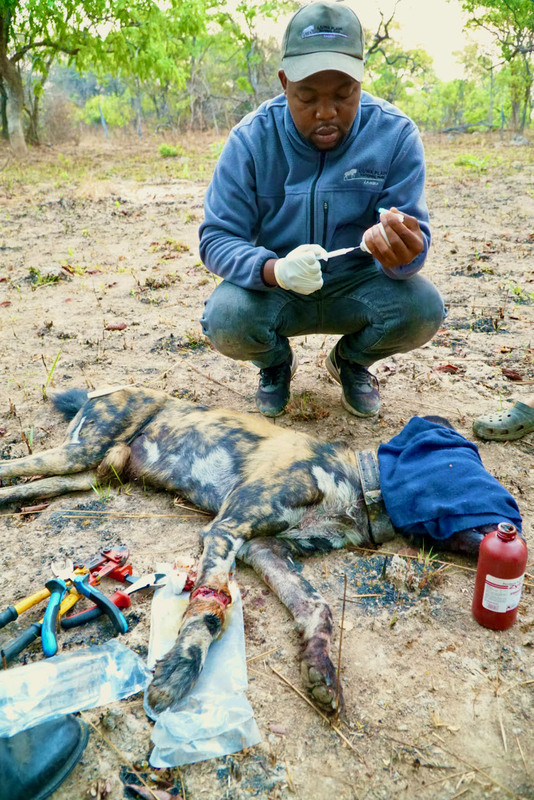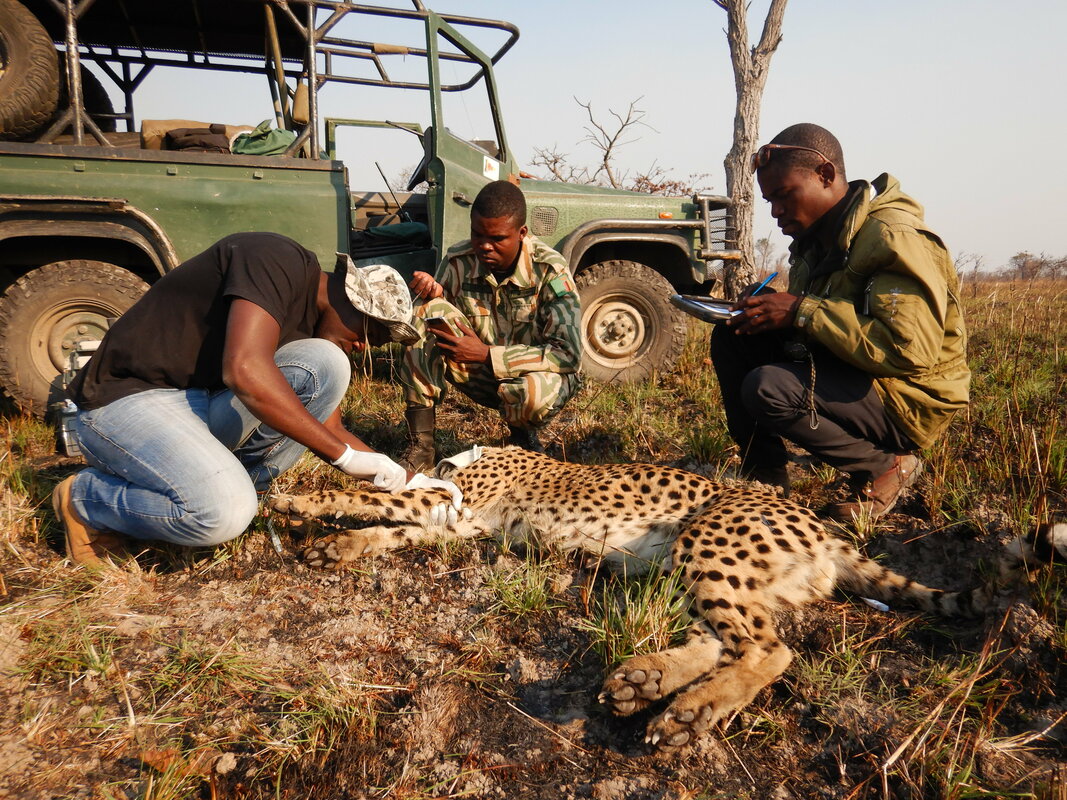
Zambian Carnivore Programme intensively monitors approximately 1,000 big cats, wild dogs, and hyenas across five ecosystems in Zambia, in what is one of the continent’s longest-running ecological studies.
In 2022 we partnered with the programme to support field-based research.
ZCP is Zambia's largest training organisation for field-based conservation biologists. They had a record year for Conservation Leadership, particularly with growth of the Women in Wildlife Conservation, Conservation Biologist, Wildlife Vet, and Professional Development Training Programmes. We are proud to support their work.
Image: Vet Dr Musalo attending to a wild dog injured by a snare. Anna Kusler/ZCP.

Cheetah - Update from the Frontline
In 2022, ZCP together with the Department of National Parks & Wildlife (DNPW) collectively monitored 72 individual cheetahs across two sites through a combination of intensive fieldwork and collaborative citizen science.
Ongoing work indicates that habitat loss and the illegal bushmeat trade are among the greatest threats to cheetahs across Zambia.
In Liuwa, snares are the primary cause of death of adult individuals.
In Kafue, bushmeat depletion appears to:
- reduce the availability of prey;
- limit cub survival;
- increase competition between cheetahs and their more dominant competitors.
Satellite collars fitted by the ZCP-DNPW teams help inform anti-poaching efforts by DNPW and partners to keep core cheetah populations safe, and the movements of collared dispersing-age individuals help ZCP to understand the connectivity of this elusive, wide-ranging species across Zambia’s vast landscapes.
If the current trends continue, it is estimated that the global cheetah population may decline by another 50% in the next 15 years – down to just 3,000 individuals.
Image: Desnaring a cheetah by Anna Kusler/ZCP



